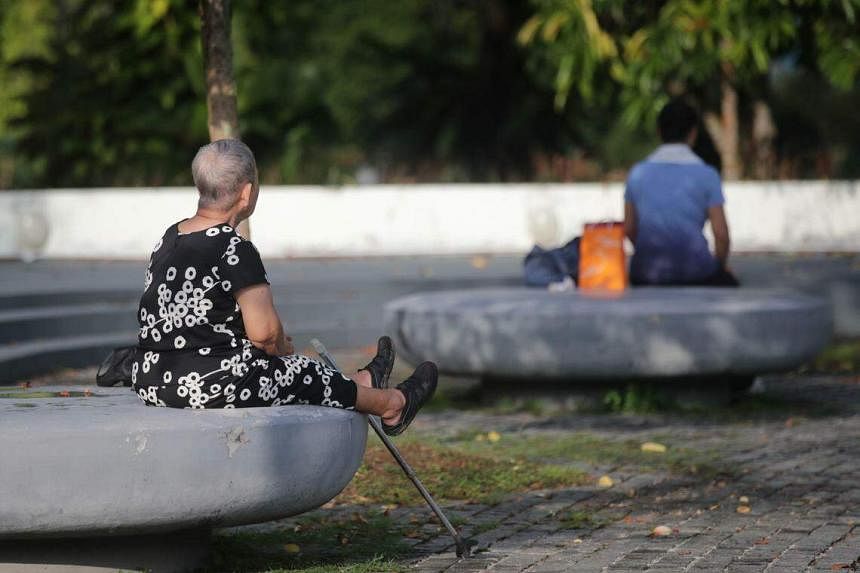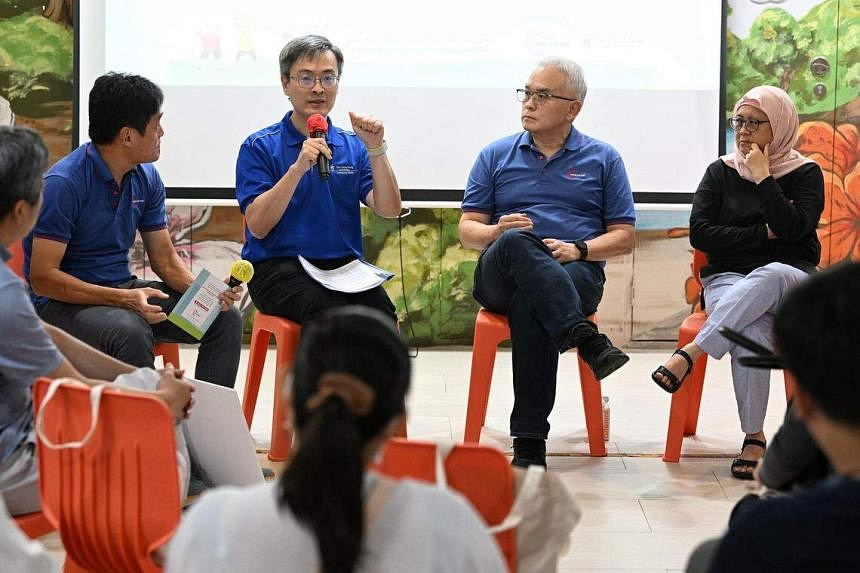Old and lonely after a successful career, and even when living with family
Sometimes, helping seniors find something meaningful to do might make all the difference in the quality of their living

Sixty-eight-year-old Madam Aminah lives in a multi-generational household with her son, daughter-in-law and four grandchildren.
Yet, she feels extremely lonely.
“Life lost its sparkle,” she says, after her closest companions – her husband and daughter – died of illness.
Madam Aminah loves playing with her grandchildren, but her son scolds them for doing so, believing that the elderly should not be disturbed because they need their rest.
Sadly, the way the family treats Madam Aminah as an “old person who should just relax, sit at home” and take care of herself exacerbates her loneliness as she feels useless. “My children do not need me,” she laments.
Loneliness has been defined as a negative emotional response when one’s desire for rewarding and meaningful social connections is not met. The condition is more widespread than we think. Earlier this month, United States surgeon-general Vivek Murthy described it as a “public health challenge”, saying that a profound sense of loneliness could be as dangerous as smoking or obesity.
Chronic loneliness
Feeling lonely occasionally is to be expected, but chronic loneliness has serious implications for physical and mental health.
A previous study in Singapore by Duke-NUS Medical School’s Centre for Ageing Research & Education (Care) has shown that older people who are chronically lonely have shorter lifespans with fewer remaining years in good health compared with those who are not lonely.
In a separate two-year study on what characterises loneliness in later life, our Care team spoke with more than 40 older Singaporeans aged 60 and above from diverse backgrounds.
About a third identified as being mostly lonely. What made this group distinct was their difficulty in overcoming their plight.
The perception of being unneeded and fear of social rejection sustained their loneliness. Such feelings arise after major life transitions, role loss in later life and declining capacity in health and finance. As a sense of shame prevails, these individuals practise social withdrawal to save face or preserve their dignity.
In contrast, those who said they were seldom or never lonely tended to describe loneliness not as a source of shame but as a temporary state that can be overcome through meaningful social exchanges, discovering novel experiences, creating new routines, and deepening one’s spirituality.
Social roles, identity and loneliness
Throughout his career in finance, Mr Liu took great pride in providing a comfortable life for his wife and two sons. When he retired at 76, life did not turn out the way he had planned.
His son was failing at work and his own relationship with his wife was strained. Unable to connect with his family members, Mr Liu became extremely lonely. He blames his younger self for prioritising work and not building a good relationship with his wife and children.
Chronically lonely older people struggle to reconcile what has been with what is. They mourn for the person and relationships that once were.
They tend to feel misunderstood by others, and often feel invisible and alone even when in the company of others, as in the case of Madam Aminah.
Social roles are important. They integrate individuals into society and shape expectations and behaviours – who we are, how we are perceived and how we interact with others. Role loss occurs after major life transitions including retirement, an empty nest, decline in health or the death of loved ones.
According to the Samaritans of Singapore, calls received from older people relate to struggles with loneliness and isolation, psychological distress and strained relationships. The number of suicides involving the elderly has increased by more than 20 per cent since 2019.
Rethink community
In pursuing successful ageing goals, Singapore’s emphasis on cultivating the “active senior” who is independent, self-reliant and continuing to contribute heightens anxieties among older people about receiving care and “becoming a burden”.
Some resort to social withdrawal to avoid troubling others. “Friends meet to be happy, if I come to them with my problems, it will affect the entire mood,” one participant in our study remarked.
“I prefer not to share what I am going through with my children because they have their own problems to think about,” said another.
Strategies to combat loneliness and social isolation are evident in the refreshed Action Plan for Successful Ageing led by the Ministry of Health. The action plan emphasises three key tenets as critical to healthy ageing: care, contribution, and connectedness. Underpinning the refreshed agenda is the realisation that we cannot live out our fullest lives as hermits. A strong and inclusive community is vital to living well.
Singapore has adopted a comprehensive approach to combating social isolation, using the A-B-C model of active ageing, befriending and care and support in the community.
The Community Networks for Seniors facilitates activities such as fitness classes, wellness talks, arts and crafts and community events, while the Silver Generation Office conducts outreach, referring those living alone and facing the risk of isolation to befriending programmes and services to assist with daily activities. The formation of Active Ageing hubs also seeks to create vibrant community spaces to encourage active participation and social interaction.
This A-B-C model may be effective in mitigating social isolation, but it does not address the root causes of loneliness in later life. Building a strong and inclusive community to address it must go beyond promoting activities, jobs and ramping up befriending programmes for our elders.
It also does not help that the active ageing model in Singapore is premised upon a narrow definition of community bounded by geographical location. A more general perspective of community focused on the social bonds of groups who share common interests, values, characteristics and goals might be more useful compared with one demarcated by physical boundary.

Most lonely older people we spoke with wanted to connect with peers of similar background and experience – someone they could relate to and who could affirm their sense of identity. They also wanted to discover new experiences to alleviate boredom, but needed some encouragement and push to do so.
In this regard, setting up social groups around past affiliations such as school alumni and occupations – like a former teachers’ network or a technicians’ group – might be more useful. Even in the neighbourhood, older people can be roped in to design and set up social spaces and activities using their collective wisdom, skills and experience. This may be better than just prescribing a template of activities for them.
Rebalance work and life
Pursuing a life worth living that will carry us well into old age should not be an aspiration post-retirement or when facing an empty nest, but a conscious goal throughout each stage of life.
But cultivating diverse roles that give us meaning requires having work-life balance and the time, resources and mind to grow familial and social relationships while investing in developing one’s own interests and personal mastery.
Personal mastery, which refers to the feeling that one has control and autonomy over one’s life, is an important trait in overcoming loneliness. It’s not a product of individual personality, but a product of cultural norms, familial dynamics, the educational system, employment practices and social policies.
Tackling loneliness is fundamentally a question about what makes our life worth living to ourselves and others, and whether we can create opportunities to build our own interests throughout our lives.
- Ad Maulod is senior research fellow at the Centre for Ageing Research & Education, Duke-NUS Medical School, Singapore. Associate Professor Angelique Chan is executive director at the same centre.
Join ST's Telegram channel and get the latest breaking news delivered to you.








No comments:
Post a Comment